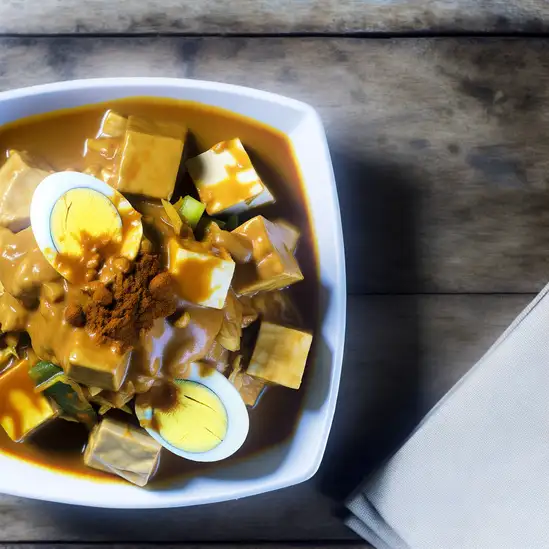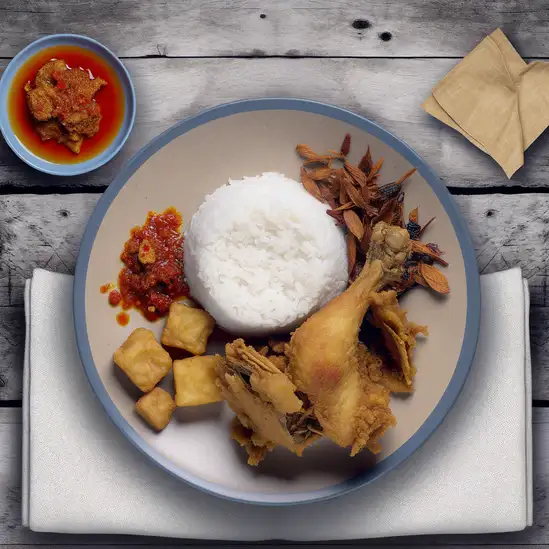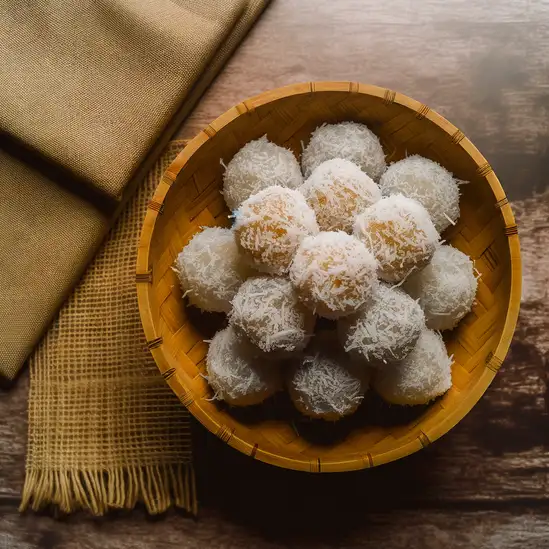



Surakarta,or Solo as the locals call it,feels like stepping into a living storybook where tradition and everyday life dance together effortlessly. The moment you wander through its bustling markets,like Pasar Klewer,you’re greeted by a vibrant tapestry of colors—batik fabrics in every pattern imaginable,the rich aroma of spices mingling with the sweet scent of fresh tropical fruits. It’s a city that hums with a gentle rhythm,from the clatter of becaks weaving through narrow streets to the distant gamelan music echoing from a nearby palace. What really makes Solo special is its deep-rooted Javanese culture that’s alive and breathing. The grand Keraton Surakarta palace isn’t just a museum; it’s a place where you can feel the weight of history and the warmth of royal hospitality. Locals are incredibly proud of their heritage,and you’ll often catch glimpses of traditional dance or hear stories passed down through generations. It’s a city that invites you to slow down,sip on a cup of strong Javanese coffee,and soak in the gentle smiles of its people. Food here is a celebration of bold flavors and comforting dishes. Don’t miss trying serabi solo,a sweet,coconut-flavored pancake that melts in your mouth,or the savory timlo,a fragrant chicken soup that feels like a warm hug on a plate. Surakarta isn’t about flashy tourist spots; it’s about feeling connected—to the culture,the history,and the simple joys of everyday life in Java.
The information on this page is currently being reviewed by Tripkliq and should be used as a guide only
Eng word: Hello
Eng pronunciation: Ha-lo
Local language: Halo
Eng word: Goodbye
Eng pronunciation: Soo-geng tin-dak
Local language: Sugeng tindak
Eng word: Thank you
Eng pronunciation: Ma-toor noo-woon
Local language: Matur nuwun
Eng word: How much
Eng pronunciation: Pin-ten
Local language: Pinten
Eng word: Toilet
Eng pronunciation: Ka-mar man-dee
Local language: Kamar mandi
Eng word: Help me
Eng pronunciation: Too-loong a-koo
Local language: Tulung aku
Eng word: Yes
Eng pronunciation: Ing-gih
Local language: Inggih
Eng word: No
Eng pronunciation: O-ra
Local language: Ora
Eng word: Excuse me
Eng pronunciation: Noo-woon se-woo
Local language: Nuwun sewu
Surakarta, also known as Solo, was established in 1745. It became a significant center of Javanese culture and tradition.
Surakarta is home to two royal palaces, Kasunanan Palace and Mangkunegaran Palace, both of which play a crucial role in Javanese culture and heritage.
Surakarta is renowned for its traditional batik fabric, which has been recognized as a Masterpiece of Oral and Intangible Heritage of Humanity by UNESCO.
The Solo River, flowing through the city, has been an essential source of irrigation, transportation, and sustenance for the residents since ancient times.
Surakarta is famous for its distinctive traditional cuisine, including dishes like Nasi Liwet and Serabi Solo, which offer a taste of the city’s rich culinary heritage.
The city has played a pivotal role in the development and preservation of Gamelan music, an iconic ensemble music of Java, featuring percussives, strings, and sometimes vocals.
Surakarta is a hub for traditional Javanese dance, hosting numerous performances and festivals that showcase artistic expressions steeped in centuries-old traditions.
Each year, Surakarta hosts the Solo International Performing Arts event, attracting artists and audiences from around the globe to celebrate dance, music, and art.
The historic heart of Surakarta, known as the Old City, is a charming area filled with colonial-era architecture, vibrant markets, and ancient mosques.
In Surakarta, the most common Power Adaptor is Type C, Type F.



A salad made of boiled vegetables, tofu, and hard-boiled eggs, all drizzled with a rich peanut sauce.

Smashed fried chicken served with sambal (spicy chili paste), rice, and fresh vegetables.

Sweet rice cake balls filled with palm sugar and coated in grated coconut, often enjoyed as a snack or dessert.

A traditional Javanese rice dish cooked in coconut milk and served with various side dishes like chicken, tofu, and vegetables.

A flavorful soup made with beef or chicken, served with rice, boiled eggs, and a variety of spices, often garnished with fried shallots.

A type of pancake made from rice flour and coconut milk, often served with sweet toppings like sugar or chocolate.

A dish consisting of fried tofu served with rice cakes and a peanut sauce, often accompanied by vegetables.
Bali feels like stepping into a vibrant dream where every corner pulses with life and warmth. From the moment you arrive,there’s this unmistakable energy—part spiritual,part playful—that wraps around you like a soft,tropical breeze. Imagine waking up to the gentle rustle of palm leaves and the distant sound of waves crashing against volcanic black sand beaches. The air carries a mix of frangipani blossoms and salty sea spray,instantly grounding you in the island’s natural beauty.
What really makes Bali special is its rich culture woven into everyday life. You’ll see locals in colorful sarongs offering flowers at temple steps,hear the rhythmic beat of gamelan music drifting through the air,and catch glimpses of intricate wood carvings and vibrant paintings in small artisan shops. The island’s spirituality isn’t just something you observe—it’s something you feel,a quiet presence that invites you to slow down and connect.
And then there’s the food—oh,the food! Freshly grilled satay,fragrant nasi campur bursting with spices,and tropical fruits so sweet they almost taste like candy. Whether you’re dining in a bustling market or a cliffside café overlooking the ocean,every bite feels like a celebration of Bali’s rich flavors and traditions. Honestly,Bali isn’t just a place you visit; it’s a place that stays with you,long after you’ve left.
If you ever find yourself wandering through Yogyakarta,you’ll immediately notice a rhythm that feels both lively and laid-back,like the city is humming a gentle,inviting tune. It’s a place where ancient traditions and youthful energy collide in the most beautiful way. As you stroll down Malioboro Street,the air is thick with the scent of sizzling satay and sweet jasmine from roadside stalls,while the chatter of locals bargaining and the distant beat of gamelan music create a vibrant soundtrack. The city’s heart beats in its art and culture—every corner seems to hold a story,from the intricate batik workshops to the majestic temples of Borobudur and Prambanan just a short ride away.
Yogyakarta’s charm lies in its warmth and authenticity. The people here are incredibly welcoming,often eager to share their crafts,stories,or a cup of strong Javanese coffee. You can feel the city’s deep respect for its heritage,yet it’s also a hub for creative souls,with street art splashed across walls and indie cafes buzzing with young artists and thinkers. The sunsets here are something else—casting a golden glow over the terracotta rooftops and ancient palaces,inviting you to pause and soak it all in.
Whether you’re wandering through the Sultan’s Palace,tasting gudeg (a sweet jackfruit stew) at a local warung,or simply watching the world go by from a cozy café,Yogyakarta wraps you in a sense of belonging. It’s a city that doesn’t just ask you to visit but to stay a little longer,to explore deeper,and to fall in love with its soul.
If you find yourself wandering through Kota Administrasi Jakarta Pusat,you’ll immediately notice the pulse of a city that’s both historic and buzzing with modern energy. It’s a place where colonial-era buildings stand shoulder to shoulder with sleek skyscrapers,creating a fascinating blend of old and new. Walking down the streets,you can almost hear the echoes of history mingling with the chatter of office workers and street vendors. The air carries a mix of aromas—from the rich,spicy scent of street food stalls grilling satay to the faint,comforting smell of freshly brewed kopi from tiny warungs tucked in corners.
What really makes Jakarta Pusat special is its vibrant character. It’s the heart of the city’s administrative and cultural life,so you’ll find a lively mix of people—government officials,artists,students,and families—all weaving their stories into the urban fabric. The bustling markets,like Pasar Baru,invite you to haggle over colorful textiles and local snacks,while nearby museums and galleries offer a quiet retreat into Indonesia’s rich heritage.
There’s a rhythm here that’s both fast-paced and inviting. Whether you’re sipping a sweet es cendol under the shade of a tree in Merdeka Square or catching the golden light reflecting off the National Monument at dusk,Jakarta Pusat feels alive in a way that’s deeply human and endlessly fascinating. It’s a city that invites you to slow down,look around,and soak in the layers of life unfolding all at once.
Imagine stepping into a city where the air carries a cool,refreshing breeze,a welcome relief from Indonesia’s usual tropical heat—that’s Bandung for you. Nestled among lush volcanic hills,this city pulses with a laid-back yet vibrant energy. As you wander its streets,you’ll hear the hum of scooters weaving through traffic,the chatter of locals bargaining in bustling markets,and the occasional clink of coffee cups from cozy cafés tucked into leafy corners. Bandung’s charm lies in this blend of nature and urban life,where modern creativity meets traditional Sundanese culture.
The scent of fresh rain mingles with the aroma of roasted coffee beans and sizzling street food,inviting you to slow down and savor the moment. Don’t miss trying the local delicacies—like the warm,comforting batagor (fried fish dumplings) or the sweet,sticky peuyeum (fermented cassava). Each bite tells a story of the city’s rich culinary heritage. Art and fashion lovers will find themselves enchanted by Bandung’s thriving creative scene,from indie boutiques showcasing local designers to vibrant street art splashed across walls.
What really makes Bandung unforgettable is its people—their warmth and easy smiles make you feel instantly at home. Whether you’re exploring the colorful markets,hiking nearby volcanic craters,or simply sipping tea while watching the sunset paint the sky in shades of pink and orange,Bandung invites you to slow down,breathe deeply,and soak in a rhythm that’s uniquely its own.
Imagine stepping into a place where the ocean breeze carries the scent of salt and frangipani,and the rhythm of traditional gamelan music hums softly in the background. That’s Lombok for you—a vibrant island that feels both alive and laid-back at the same time. Unlike its flashier neighbor Bali,Lombok has this raw,untouched charm that invites you to slow down and really soak in the moment. The beaches here aren’t just pretty; they’re vast stretches of powdery white sand meeting turquoise waves that seem to whisper stories of ancient fishermen and island life.
Walking through the local markets,you’ll hear the lively chatter of vendors selling fresh spices,tropical fruits,and handwoven textiles. The air is thick with the aroma of grilled satay and sweet coconut,tempting you to try every bite. The Sasak people,with their warm smiles and rich traditions,add a deep cultural layer to the island’s character. You might catch a glimpse of their intricate weaving or hear tales of their unique ceremonies,which feel like a bridge between past and present.
What really stays with you about Lombok is its balance—between adventure and tranquility,nature and culture. Whether you’re hiking up Mount Rinjani’s misty slopes,diving into vibrant coral reefs,or simply sipping a fresh coconut by a quiet beach,there’s a genuine sense of connection here. It’s a place that doesn’t just fill your camera roll but leaves a quiet imprint on your heart.
If you ever find yourself craving a place where the ocean breeze carries the scent of sizzling street food and the hum of lively markets fills the air,Makassar should be at the top of your list. This city pulses with a laid-back energy that feels both vibrant and welcoming,like a friend inviting you to slow down and savor the moment. Walking along the waterfront,you’ll catch glimpses of traditional wooden phinisi boats bobbing gently,their sails catching the golden light of sunset,while fishermen call out to one another in a melodic rhythm that feels timeless.
Makassar’s streets are a feast for the senses. The aroma of grilled seafood—freshly caught and seasoned with local spices—wafts from warungs lining the alleys,tempting you to try coto Makassar,a rich,aromatic beef soup that locals swear by. The city’s mix of Bugis and Makassarese cultures shines through in its colorful markets,where vibrant textiles,handcrafted jewelry,and lively banter create a tapestry of daily life that’s both authentic and inviting.
What really makes Makassar stand out is its blend of old and new. You can explore centuries-old forts and mosques,then hop over to a bustling café where young creatives gather,blending tradition with modern flair. It’s a place where every corner tells a story,and every meal feels like a celebration. Trust me,Makassar isn’t just a stopover—it’s a place that stays with you long after you’ve left.
Money changers may use misleading rates or shortchange tourists during currency exchanges.
Vendors sell counterfeit or low-quality souvenirs claiming they are authentic local crafts or antiques.
Scammers pose as tour guides and offer overpriced or fake tours, often taking tourists to shops where they receive commissions.
Tourists are taken to batik shops where prices are inflated, and sellers claim the products are handmade when they are mass-produced.
Drivers of taxis, rickshaws, or motorbike taxis may overcharge tourists or refuse to use meters, especially near tourist hotspots.
Thieves target tourists in crowded areas, markets, or public transportation to steal wallets, phones, or other valuables.
Scammers sell fake tickets to cultural events or attractions, leaving tourists unable to enter the venue.
Indonesia has very strict drug laws, and Surakarta is no exception. The possession, use, or trafficking of illegal drugs is punishable by severe penalties, including long prison sentences, heavy fines, and even the death penalty for trafficking. Tourists should avoid any involvement with drugs and be cautious about carrying prescription medications, ensuring they have proper documentation if needed.
In Surakarta (Solo), Indonesia, smoking is regulated under national and local laws. Smoking is prohibited in public places such as schools, healthcare facilities, places of worship, public transportation, and government buildings. Designated smoking areas may be available in some locations. Violations can result in fines. Tourists should be mindful of 'No Smoking' signs and respect local customs.
Vaping is treated similarly to smoking in Surakarta and is subject to the same restrictions. It is prohibited in smoke-free zones, and the sale of e-cigarettes may be regulated. Tourists should avoid vaping in public places unless in designated areas to avoid fines or penalties.
What are other people saying about Surakarta?
Recent Social posts about Surakarta
There is nothing to show you for now.